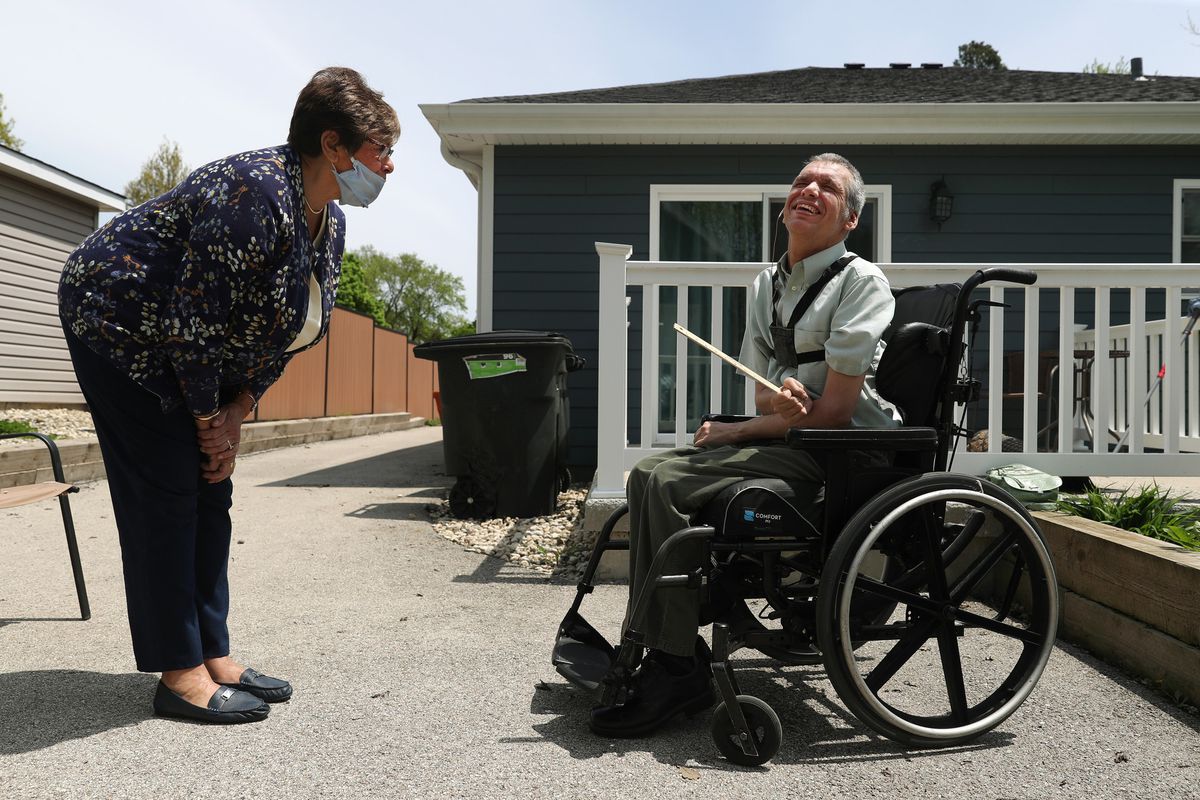In a Provider Information Notice dated June 26, the California Department of Social Services (DSS), updated guidance on visitations to licensed facilities, including many residential settings for people with developmental disabilities. The guidance now allows for visitation by family members or other individuals under certain requirements. Parents and family members of people with intellectual and developmental disabilities have been raising concerns about their inability to visit their child for more than three months, causing deterioration in mental health and increasing anxieties.
The guidance allows visitations under the following conditions:
Visitation
In accordance with current public health guidance, visitation by non-essential individuals should be limited until all of the following conditions are met:
- There have been no new transmissions of COVID-19 at the facility for 14 days.
- Facility is not experiencing staff shortages.
- Licensee has adequate supplies of PPE and essential cleaning supplies to care for persons in care.
- Licensee has adequate access to COVID-19 testing as outlined in the “Testing for COVID-19 in Residential Facilities” section above.
- Require visitors to wear face coverings (i.e. facemasks or cloth face coverings).
Note: If all the above conditions are met, indoor visitation at the facility is permitted. See “Other Safety Protocols” below for best practices.
During the time when visitation is limited as indicated above, following exceptions apply:
- Allow limited visits on the facility premises where there is 6 feet or more physical distancing, source control, and infection control (e.g. drive-by visits or visit through a resident’s window).
- Allow visitation for medically necessary visits (e.g. end-of-life) or other urgent health or legal matters that cannot be postponed (e.g. estate planning, advance health care directives, Power of Attorney, transfer of property title).
- Allow visitation for social workers who are legally responsible for a person’s care to carry out their duties.
- As otherwise required in the Visitation Waiver in PIN 20-09-CCLD. Allow CDSS, CDPH, local health department officials, healthcare providers, Ombudsman, and essential government authority to enter or conduct investigations at the facility.
Other Safety Protocols
- Allow scheduled visits on the facility premises where there is 6 feet or more physical distancing, and both residents and visitors wear face coverings with staff monitoring infection control guidelines (e.g. large communal spaces, outdoor visits, space close to facility entrance to reduce traffic in facility).
- To the extent possible, visits should take place outside. Where appropriate, designate an outdoor area, such as the yard, patio, open porches, parking lot, or driveway for visits, weather permitting.
- Visits should be scheduled in advance.
- Limit the number of visitors at any one time to avoid having large groups congregate.
- Screen all visitors for symptoms, including temperature screenings.
- Visitors should physically distance during their visit.

